2020 in Review: Highlights from an Unprecedented Year at Columbia Engineering
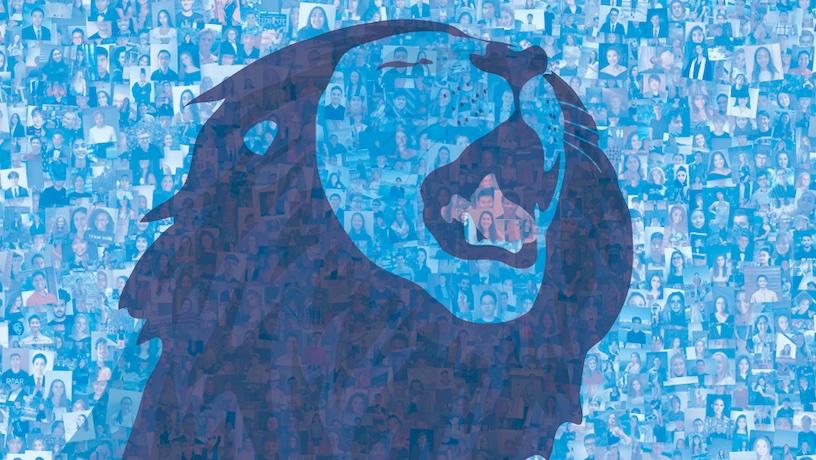
In a year unlike any other, Columbia engineers continued discovering and innovating from around the globe—collaborating across disciplines to build a more secure, connected, healthy, sustainable, and creative world.
Working from Morningside Heights and around the world, our student and faculty researchers achieved major breakthroughs, developed promising designs, launched exciting new startups, garnered prestigious honors, confronted the pandemic, and more.
Here are a few highlights from the past 12 months:
Dean Boyce Named Columbia’s Next Provost
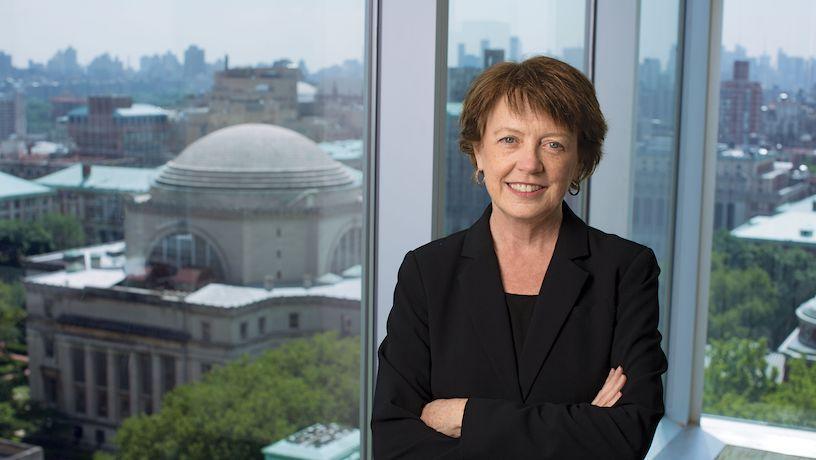
Capping off a transformative administration at Columbia Engineering, Dean Mary C. Boyce has been appointed the next Provost of Columbia University, effective July 1, 2021, making her the first woman to serve in the position. During her more than seven years at the helm, Boyce has fostered interdisciplinary collaboration in a broad range of areas from data science and nanoscience to sustainability. At the same time, she worked to expand cross-disciplinary research initiatives, entrepreneurship activities, and global opportunities for students, including Columbia Design Challenges and student ignition grants aimed at timely challenges.
Inspired by Nature
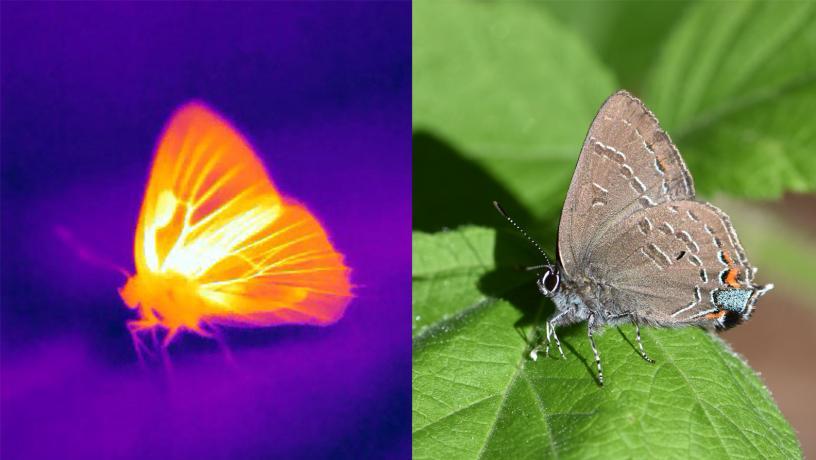
In partnership with biologists at Harvard, Columbia engineers led by Prof Nanfang Yu of applied physics discovered that butterflies have evolved specialized behaviors and wing nanostructures with important implications for radiative-cooling materials and even potential new flying machines.
The Magic Touch

Using overlapping layers of light, a research team under Profs Matei Ciocarlie and Ioannis (John) Kymissis have created a new type of robotic finger with an extremely precise sense of touch over complex multicurved surfaces, much like the human version.
Decoding the Brain
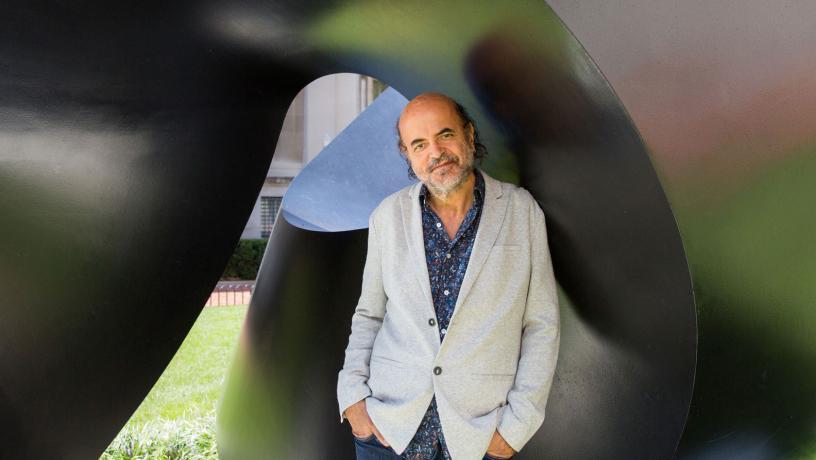
An international team led by Prof Christos Papadimitriou of computer science developed a brain architecture based on neuronal assemblies and proposed a new computational model of the brain that they’re already applying to language processing.
Reviving Lungs

Multidisciplinary researchers co-led by Prof Gordana Vunjak-Novakovic of biomedical engineering and medical sciences demonstrated that human lungs rejected for transplant can be recovered via the process of blood cross-circulation, with the potential of vastly increasing the scarce supply for patients.
New AI Partnership with Amazon
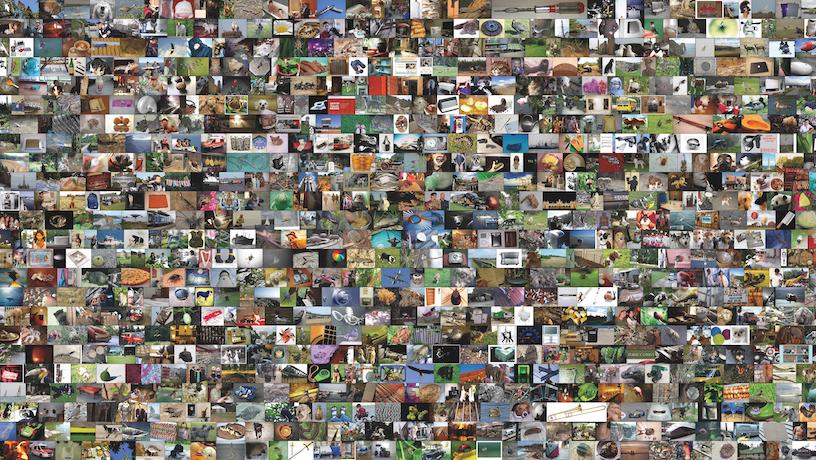
We’ve teamed up with Amazon to create the Columbia Center for Artificial Technology, with the online innovator providing a cool million for each of the next five years to support AI research, education, and social responsibility.
Making Quantum Leaps
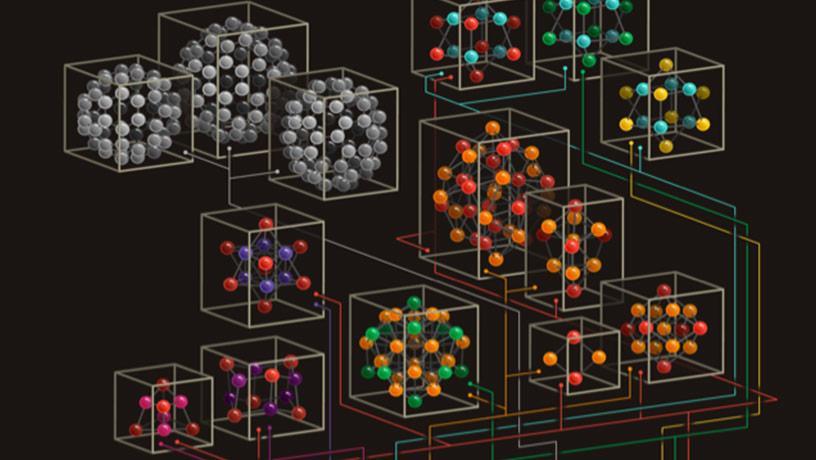
Columbia Engineering investigators continue to advance quantum research, which promises not only to transform communications tech but also to allow for the design of the most energy-efficient systems possible. Prof James Schuck and colleagues demonstrated a method for creating highly tunable single-photon emitters functional at room temperature, while Prof James Hone's group devised a new method for creating versatile atomically thin layers. Hone also co-discovered a quantum fluid in a 2D semiconductor, a promising testbed for future research. In addition, the Center for Precision-Assembled Quantum Materials, part of Columbia’s Materials Research Science and Engineering Center, won an $18 million NSF grant to support cutting-edge research into new quantum materials and Profs Alex Gaeta and Michal Lipson and University colleagues joined a $115 million DOE-funded center that will pioneer quantum technologies designed to benefit national security, pharmaceutical development, and more.
Honoring Columbia’s First Black Graduate
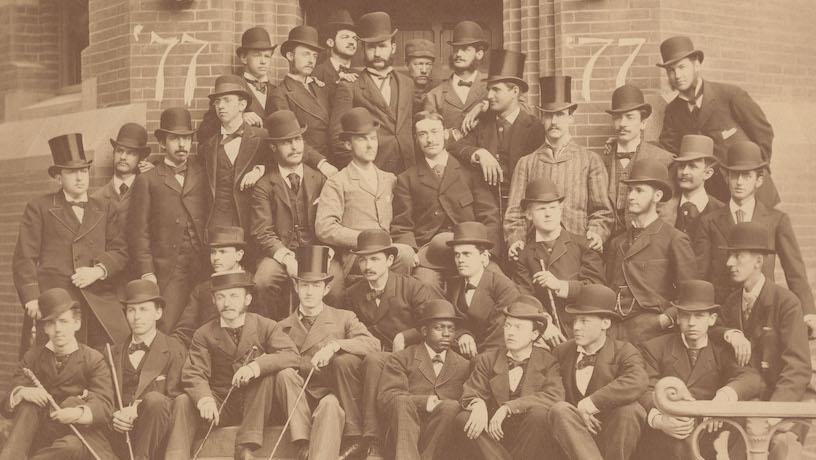
Graduating from Columbia's newly-established School of Mines in 1877, Liberian-born James R. Priest became the university's first-ever Black graduate. To honor his experience and address a long legacy of injustice, Columbia Engineering has launched a major scholarship initiative supporting undergraduate students at Columbia Engineering who have demonstrated leadership in and support of the Black community.
Bringing Together Thinkers and Creators
Armstrong Memorial Lecture featuring Steven Chu.
From events on campus early in the year to more recent virtual gatherings, Columbia Engineering convened innovative thinkers and creators across the disciplines. After launching the new Makerspace in January, we welcomed Mediacom Chair and CEO Rocco Commisso ’71 ’75BUS for the Magill Lecture. The Data Science Institute’s annual Data Science Day went remote this spring with special guest Pat Bajari, Chief Economist and Vice President of Amazon Core AI, while Nobel Laureate Steve Chu delivered the annual Armstrong lecture in November. Meanwhile, Columbia Engineering Entrepreneurship hosted a variety of talks in addition to the largest-ever Fast Pitch competition.
Confronting our Climate Future
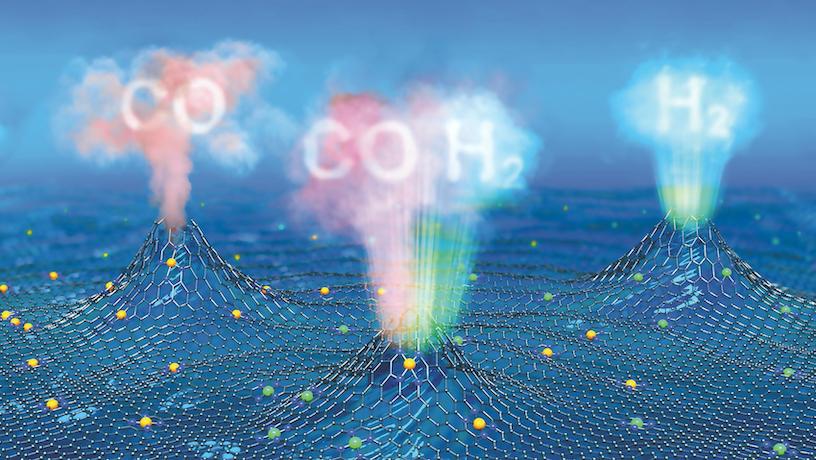
The next decade will be pivotal for averting a climate crisis; our faculty have been hard at work creating the tools to meet the challenge. From cleaning up the construction industry to finding new ways to sequester carbon--from making big data more energy efficient to finding cleaner sources of that energy, engineers and applied scientists are increasingly integral to the future of a healthy planet. That’s true not just for the sustainable technologies they produce, but also for their ability to create mechanisms for systemic change, reconceiving how markets invest in clean tech and how cities balance the fiscal and cultural impacts of rising seas.
Mastering Design
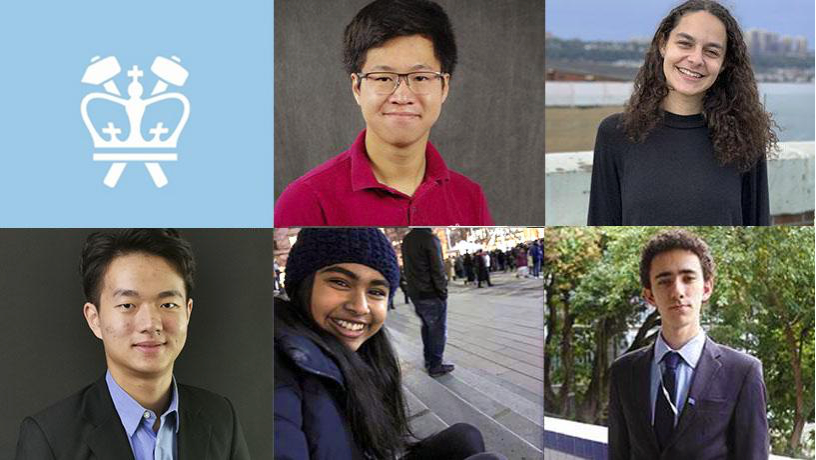
While still on campus this February, we partnered with Tikkun Olam Makers (TOM) for a weeks-long makeathon devoted to designing solutions for veterans’ unique challenges. Later, with the nation in lockdown, we hosted six remote design challenges focused on COVID and climate change that yielded promising startups from students across the university and globe. Over the summer, an array of undergrads continued ambitious research ranging from analyzing energy markets to exploring the mechanics of pregnancy.
Confronting COVID-19
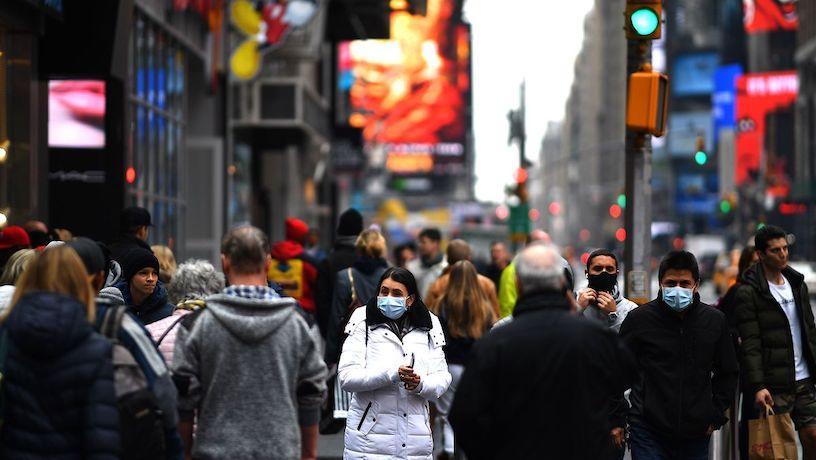
As the global pandemic hit this spring, Columbia engineers leveraged their cross-disciplinary expertise to slow the spread, improve diagnostics, develop treatments, and save lives. Amid a worldwide shortage of personal protective equipment, teams of faculty, students, and staff collaborated online 24/7 for weeks with peers at the Columbia University Irving Medical Center and physicians at NewYork-Presbyterian Hospital and beyond to design, manufacture, and distribute up to hundreds of thousands of economical face shields per day. A million-dollar grant from business leader and Board of Visitors member Dr. Bing Zhao ’92 ’94 helped faculty across the university pivot their research to the pandemic. A project led by Prof Jingyue Ju of chemical engineering identified a library of molecules capable of targeting a key protein the coronavirus uses to replicate. A portable, affordable, highly accurate and ultrafast point-of-care platform from biomedical engineering Prof Sam Sia’s startup Rover Diagnostics was selected in the National Institutes of Health’s highly competitive Rapid Acceleration of Diagnostics (RADx) initiative. Other pandemic researchers included Prof Gordana Vunjak-Novakovic of biomedical engineering, who’s using small and large animal models to develop a potential inhalation treatment for acute respiratory syndromes and Prof Kartik Chandran of earth and environmental engineering, who's working with officials across the U.S. to monitor wastewater streams for COVID footprints. Overall, the School’s ad hoc COVID Innovation Group was instrumental in launching more than 20 research projects.
Students, Alums Earn Honors
This spring, graduating biomedical engineers Bunmi Fariyike ’20 and Michael Kirschner ’20 received Fulbright Scholarships to conduct genetics research in Madrid and Copenhagen, respectively, while chemical engineer Sapna Ramesh ’21 was named a 2020 Goldwater Scholar for her work in better batteries and 21 students and alumni won graduate research fellowships from the National Science Foundation. This fall, chemical engineer Virginia Jiang ’21 earned the Chopey Scholarship, and three alumni placed on Forbes’ 30 Under 30 lists.
Fantastic Faculty
Our faculty continued to garner an impressive array of recognitions, earning prestigious awards and election to august organizations.
On the awards front, Dean Mary C. Boyce of mechanical engineering received the 2020 Timoshenko Medal; Michal Lipson of electrical engineering and applied physics became the first woman to receive the John Tyndall Award and received the Erna Hamburger Prize from the Swiss Federal Institute of Technology in Lausanne—Women in Science and Humanities Foundation as the year’s “most influential woman in science;" Jingguang Chen of chemical engineering received the R.H. Wilhelm Award in Chemical Reaction Engineering, AIChE, named for Columbia Engineering alumnus Richard H. Wilhelm BS’31, PhD’34; Julia Hirschberg of computer science received the International Speech Communication Association’s (ISCA) Special Service Medal; Elizabeth Hillman of biomedical engineering and radiology (physics) earned the Royal Microscopical Society Mid-Career Scientific Achievement Award; Aaron Kyle of biomedical engineering received the 2020 Biomedical Engineering Society Diversity Lecture Award; Jeannette M. Wing of computer science and the Data Science Institute received an honorary doctorate from Linköping University in Sweden; and Michael Burke of mechanical engineering, Sharon Di of civil engineering, Adam Elmachtoub of IEOR, Xiaofan (Fred) Jiang of electrical engineering, Dion Khodagholy of electrical engineering, and Nandan Nerurkar of biomedical engineering each earned NSF CAREER Awards. Michael Weinstein of applied physics and applied mathematics won the Simons Math + X Investigator Award renewal 2020-2025 and Steve WaiChing Sun of civil engineering and engineering mechanics won the 2020 IACM John Argyris Award for Young Investigators.
Among those welcomed into organizations were Michal Lipson of electrical engineering and applied physics and Mihalis Yannakakis of computer science, who were elected to the American Academy of Arts & Sciences; Lipson also was selected by the Optical Society to serve as its 2021 Vice President; Kam Leong of biomedical engineering was elected to the National Academy of Medicine; Debasis Mitra of electrical engineering and Ah-Hyung (Alissa) Park were elected as fellows of the American Association for the Advancement of Science; Park was also selected as an American Chemical Society fellow; Christine Hendon of electrical engineering and Aaron Kyle of biomedical engineering were elected to the American Institute for Medical and Biological Engineering College of Fellows; Hendon was also elected as a fellow to The Optical Society; Prof X. Edward Guo of biomedical engineering was named a 2020 fellow of the Biomedical Engineering Society; and Tal Malkin of computer science was named a fellow of the International Association for Cryptologic Research. Helen Lu of biomedical engineering was elected a Fellow of Biomaterials Science and Engineering (FBSE), International Union of Societies for Biomaterials Science and Engineering (IUSBSE); Tim Roughgarden of computer science was selected as a Fellow of the Game Theory Society; Michael Mauel of applied physics became a National Associate of the Academies, National Academy of Sciences; and Clark Hung of biomedical engineering was named a Fellow of the International Orthopaedic Research, International Combined Orthopaedic Research Societies.
